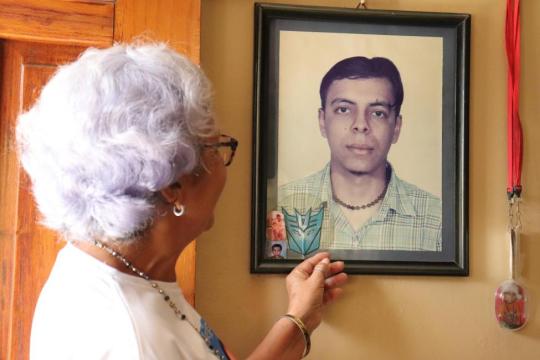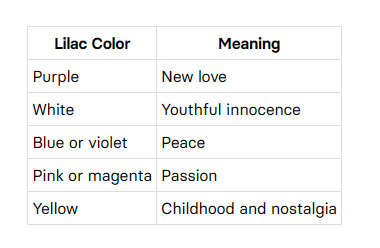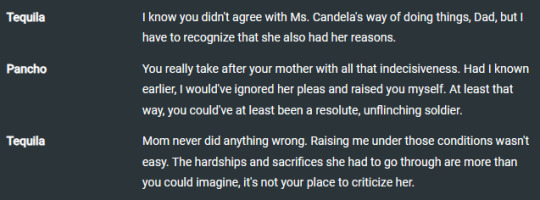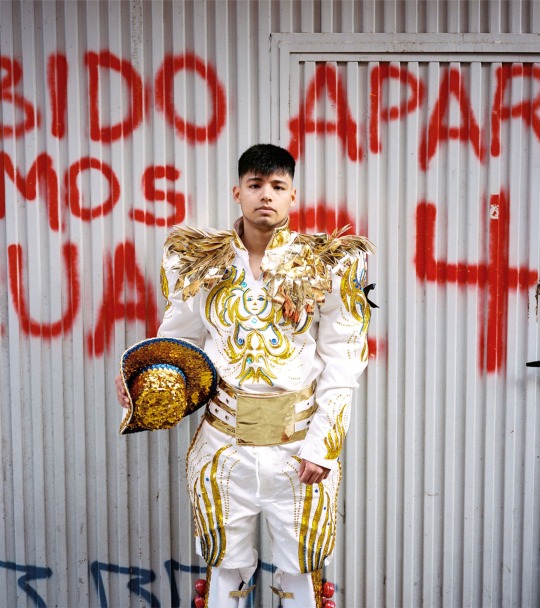#Bolivarian
Text
By Scott Scheffer
Now, almost unbelievably, the U.S. machinery of state is trying to set up an opportunity for yet another U.S. war – this one against Venezuela using that country’s neighbor Guyana as a proxy, by reviving a centuries-old border dispute that lay dormant for decades.
The exploitation of newly found oil reserves larger than those of the United Arab Emirates or Kuwait by U.S. oil giants triggered the escalating aggression by the White House.
#Venezuela#Guyana#Big Oil#imperialism#antiwar#essequibo#Latin America#border dispute#Bolivarian#Pentagon#Joe Biden#proxy war#Ukraine#Palestine#Struggle La Lucha
262 notes
·
View notes
Text
“The Games will be up to the task”
“The Games will be up to the task”
The XIX Bolivarian Games, which were inaugurated last night in Valleduparwill be “on” in the previous editions, according to the organizers, despite setbacks and difficulties in adapting some scenarios.
“You can give some peace of mind. There are few things we need to adjust. Let’s make some good Games. We will be at the pinnacle of all Games,” the race director, Ana Edurne Camacho, assured…
View On WordPress
#Article#bolivarian#Bolivarian Games#Bolivarian Games Valledupar-2022#sport-#the herald#Valledupar Cesar
0 notes
Photo

Karla Jaramillo 🇪🇨
2022 Bolivarian Games (Valledupar)
#karla jaramillo#team ecuador#race walking#female athletes#atletismo#athletics#track and field#bolivarian games
2 notes
·
View notes
Text
Biden Administration’s New Restrictions on U.S. Asylum Law Being Challenged in Federal Courts
This year has seen many developments regarding the Biden Administration’s attempts to cope with the large numbers of migrants illegally crossing the U.S.-Mexico border. Here is a review of some of those developments.
Biden’s New Asylum Regulation[1]
On February 21, the Biden Administration announced a proposed rule that would require rapid deportation of an immigrant at the U.S. border who had…
View On WordPress
#American Civil Liberties Union (ACLU)#asylum#Biden Administration#Blas Nuñez-Neto#Bolivarian Republic of Venezuela#Cuba#DHS Secretary Alejandro N. Mayorkas#District Judge Jon S. Tigar#Erin Heeter#Federation for American Immigration Reform#Haiti#Immigrant Defenders Law Center#Jane Bentrott#Judge Lawrence Van Dyke#Judge Richard A. Paez#Judge William A. Fletcher#Justice Action Center#Katrina Eiland#Krish O’Mara Vignarajah#Lee Gelernt#Lindsay Toczylowski#Lutheran Immigration and Refugee Service#Nicarauga#U.S. Attorney General Merrick B. Garland#U.S. Court of Appeals for the Ninth Circuit#U.S. District Court for Northern California#U.S. Representative Jerrold Nadler#U.S. Representative Pramila Jayapal#U.S. Senaator Alex Padilla#U.S. Senator Ben Ray Luján
0 notes
Photo

World: New network on Missing Migrants in the Americas aims to drive actions to save lives
Countries: Colombia, Dominican Republic, Haiti, Mexico, Panama, Puerto Rico (The United States of America), United States of America, Venezuela (Bolivarian Republic of), World Source: International Organization for Migration Thousands of people are dying crossing deserts, rivers and remote areas in the Americas - IOM Missing Migrants documented 1,433 deaths in 2022, the highest number since the project began in 2014.
https://reliefweb.int/report/world/new-network-missing-migrants-americas-aims-drive-action-save-migrant-lives
#Colombia#Dominican Republic#Haiti#Mexico#Panama#Puerto Rico (The United States of America)#United States of America#Venezuela (Bolivarian Republic of)#World#International Organization for Migration#Protection and Human Rights#News and Press Release#ReliefWeb - Updates (Headlines)
0 notes
Note
What are your criticisms of Chavismo and Maduro just out of curiosity?
now i'd like to preface this with a disclaimer that any opposition ghoul would do nothing but sell the country out to the USA and UK every which way in a heartbeat--maduro is better than any alternative, whether that's guaidó or whichever neoliberal puppet they prop up to replace him.
anyway, there were two key problems with chavismo. firstly, it's fundamentally a national-bourgeois led social democratic movement. obviously in an imperialized country like venezuela this made it profoundly progressive, and the achievments of the bolivarian revolution were incredible--chávez cut malnutrition in half, cut unemployment in half, sent millions of children to school and gave millions of elderly people pensions. however, this project of wealth distribution ultimately had to accomodate the national bourgeoisie. which of course on one hand you can argue was completely necessary, but on the other hand allowed the parasitic classes to entrench themselves firmly within elements of the state apparatus and made chavismo as a project entirely incapable of confronting the national bourgeoisie or corruption.
these of course are the realities of 'democratic socialism', of sweeping a socialist into office in a bourgeoise democracy. through some extremely clever political structures, such as the new constitution, communes, and bolicarian circles--he was able to move much more radically than most in his position. but ultimately, he could not escape the fundamental limits of the source and constraints of his power.
the second is that--and this is a very tawdry and obvious piece of analysis--while it is of course admirable and correct that he seized the nation's oil wealth and enriched the country with it--the way he did it was obviously shortsighted. without a sovereign wealth fund, worker's democratic control of the oil industry, or a solid and far-ranging investment plan, he laid the groundwork for some of the current crisis on the assumption that oil prices would stay high forever.
maduro inherited these faults and added far more of his own. during the crisis that began in earnest in 2016, the other shoe dropped wrt oil prices at the same time as the US tightened their murderous sanctions regime. faced with economic crisis, maduro has broadly chosen to move from chávez' strategy of accomodation with the national bourgeoisie to a full on alliance. social programs have been slashed, pensions cut, wages have plummeted, and worst of all, maduro has sold off countless state enterprises in the hope that oft-prayed to benevolent deity, "foreign capital" would miraculously heal the economy. in the course of this he made an enemy of many early chavistas, as well as the leftmost wing of chávez' coalition -- he has mobilized the full force of the bourgeois state against the country's communist party and other genuinely revolutionary movements, most gallingly the marxist-leninist movimiento tupamaro.
so, tldr: chavismo was genuinely radical compared to even your average third-world social democracy--however it remained fundamentally constrained in what it could accomplish by the lack of an actual proletarian state, was unable to rid itself of reliance on the national bourgeoisie for that same reason, and made some very avoidable mistakes in the handling of the nation's oil wealth--maduro inherited those flaws but has been much more accomodating to both national and international capitalists to the detriment of the people of venezuela.
247 notes
·
View notes
Text
in la pluma's oprec, it is stated that the flower pinned to tequila's mother's chest is a lilac.
while, this entire time i had assumed it was a red flower, it's a lilac.

purple lilacs in particular represent the first feeling of love (a first love), which could be inteperated as the first person tequila truly loved being his mother. she was the first person who cared for him, and he quite literally was birthed from him. it only made sense for him to consider her a "first love" (not in a romantic sense, if you're curious)
lilacs also mean purity, and innocence. his mother partook in none of the crimes her son, tequila, and her future step-daughter, la pluma, would eventually become apart of. she wasn't villainous like her husband, pancho. she was genuinely sweet, and while we know little about her, we can safely assume that she was kind-hearted. tequila only has good things to speak of her, even defending her in his oprec when pancho and him have an argument.

the usage of lilacs is intentional, we can take this as symbolism for tequila in a sense. when his mother passed away, so did his innocence. he was no longer able to be 'coddled' by his own mom, forced to become a child soldier and a hardened rock at a young age. he didn't have time to blossom, he was forced to come out of his shell as he was already. of course, that had a detrimental effect on him in the long run.
tequila is the farthest thing from an 'innocent' operator, even if he tries to mask his personality as so. he came to rhodes island because ch'en didn't want to murder him, because he felt like after failing pancho's plans, he should've been killed. the entirity of dossoles holiday is about finding out whos trying to plot against dossoles, only for ch'en and lin to realize it's tequila. the fucking tour guide, the happy-go-lucky one. he wants to be seen as this perfect older brother to everyone, unaware that most bolivarian operators and well.. uh, ch'en and la pluma have seen him behind his mask. they know he's dangerous, as well as sussuro (its the first thing in his files people!!)
no matter how hard tequila tries to cover up his past, it will prevail. he has to understand that he can't run away from it, instead, embrace it. not with a warm hug, but an understanding gaze. what has happened, has happened, and at rhodes island things are different. he doesn't have to be controlled, he is able to act himself the way he wants to. it's rhodes island, they're accepting. he won't ever be able to 'unbloom' and 'bloom' again, but he can still share his nectar. his care, his love, himself.
70 notes
·
View notes
Photo

Federation of the Andes
The Federation of the Andes was a nation proposed by Simón Bolívar in 1826 that would consist in a union between the nations “liberated” by him.
There was a proposal to organize the Federation in 6 states: Colombia would be divided in 3 states (Ecuador, Nueva Granada and Venezuela), while Peru would be divided in two states (North and South). It was also planned to give away the Peruvian coast from Tacna to Tarapaca to Bolivia, exchanging it for Apolobamba and Coapacabana. Each state would be divided into departments, the departments into provinces and the provinces into cantons (not shown). As for the capital, it would be Quito or Guayaquil.
Regarding the government, there would be a "Supreme Chief for Life" with the power to inherit the leadership to whomever he wanted, a tricameral federal parliament and an authoritarian, centralized and militarized administration. It was a monocracy strongly inspired by the Consulate of Napoleon Bonaparte and the regime of the Haitian Jean Pierre Boyer.
The project failed due to the rejection of the Peruvians and the political crisis that occurred in Colombia. In January 1827, while Bolívar was in Colombia to defeat the separatist attempts, an uprising overthrew his government in Peru and the Bolivarian Constitution was abolished in June of that same year, prohibiting his entry and losing all his influence in Peru. The next country to lose Bolivarian influence would be Bolivia, after the Peruvian invasion in 1828, which ended with the overthrow of Antonio José de Sucre, Bolívar's right-hand man. Finally, Gran Colombia would end up completely disintegrating in 1830.
64 notes
·
View notes
Text

Bolivarian man, 2024
Imanol Villota©️
#imanolvillota#photography#work#editorial#photographers on tumblr#landscape#imanolvillotaphotography#contemporary photography#streetphotography#editorial photography#portraitphotography#streetphotomag#street portrait#medium format#analog#120 film#120mm film#kodak portra 400
23 notes
·
View notes
Text
I really like the idea of a person who was totally vibing with the rest of my communist and anti-imperialist posting but was somehow blindsided by me supporting Hugo Chavez and the bolivarian revolution and decided they had to unfollow
49 notes
·
View notes
Text
By Andreína Chávez Alava
For over two decades, Venezuela has been the target of the “free elections” broken record alongside regime change operations and economic sanctions, leaving a long trail of destruction behind. How does the U.S. get away with this “free elections” scam? With the unconditional support of the remorseless corporate media.
#elections#Venezuela#imperialism#media#sanctions#Donald Trump#Genocide Joe#Hillary Clinton#propaganda#regime change#Bolivarian Revolution#Struggle La Lucha
37 notes
·
View notes
Text
Colombia reigns in karate at the 2022 Bolivarian Games
Colombia reigns in karate at the 2022 Bolivarian Games
The karate gave to Colombia gold medal number 23 in the Valledupar . Bolivarian Games† Diego Lenis, Jose Ramírez Gutierrez, Juan Camilo Fernández, Juan Felipe Landázuri and Rubén Darío Henao They gave the country a new joy in the caesarean section, winning yesterday in the final of the kumite modality for men’s teams.
Colombia defeated 6-0 yesterday Ecuador, who finished second and won the gold…
View On WordPress
0 notes
Text
The Question of Venezuelan Social-Imperialism
Are Venezuela's threats against Guyana Social-Imperialism? Lenin used Social-Imperialism ok in simple terms of a nation that is Socialist in deeds or name (for example the ruling party of Venezuela is ostensibly socialist in character at least historically) however in deeds In either policy as a rule or in a particular action do imperialist deeds.
But what does this mean? And how is it important to Venezuela's confrontation against the Socialist nation of Guyana? Well, let's start with why Venezuela wants the region. Well, the dispute comes from firstly imperial sources, this dispute predates an independent Guyana and is namely a dispute between Venezuela and the United Kingdom. In 1899 the British Empire which at the time controlled Guyana as a puppet awarded “the entire mouth of the Orinoco River and the land on either side to Venezuela; it granted to the United Kingdom the land to the east extending to the Essequibo River.” When Guyana gained independence in 1966 all countries involved Except the signed the Geneva Agreement which said that all parties should come to a peaceful, practical and satisfactory decision on the status of the Essequibo. Which never happened. However, the treaty said if a stalemate happened then a relevant international organ Could step in as a mediator which happened in 2020 when the ICJ took the case. Guyana filed the case with the ICJ and the majority of judges agreed the court has jurisdiction to take the case further with Guyanana. First, the ICJ needed to have a case to decide if this was in the ICJ's jurisdiction. And if so, what timeline did it have jurisdiction over. in that case for the first ruling it was ruled 12 to 4 that the ICJ had jurisdiction based on the 1966 Geneva agreement that it has the authority to arbitrate over the award given in 1899, “that it has jurisdiction to entertain the Application filed by the Co-operative Republic
of Guyana on 29 March 2018 in so far as it concerns the validity of the Arbitral Award of
3 October 1899 and the related question of the definitive settlement of the land boundary dispute
between the Co-operative Republic of Guyana and the Bolivarian Republic of Venezuela;” However there was a judge who disagreed notably with four Judge Gevorgian, Which for the sake of accuracy here is the entire dissenting opinion.
“Dissenting opinion of Judge Gevorgian
Judge Gevorgian disagrees with the Court’s conclusion that it has jurisdiction to entertain
Guyana’s claims.
In his view, the Court’s Judgment undermines
parties to the Court’s jurisdiction. The Court has made the unprecedented decision to exercise jurisdiction on the basis of a treaty that does not even mention the Court and contains no clause referring disputes to it. This is especially problematic as one of the Parties has consistently refused to submit the present dispute to the Court, and the dispute concerns national interests of the highest order, such as territorial sovereignty. In particular, Judge Gevorgian considers that Article IV (2) of the Geneva Agreement does not empower the Secretary-General of the United Nations to issue a legally binding decision as to the means of settlement to be employed by the Parties. The contrary conclusion reached by the Court is not supported by the text of the Geneva Agreement or by the Agreement’s object and Purpose. In Judge Gevorgian’s view, the object and purpose of the Geneva Agreement is to help the Parties reach an agreed settlement to their dispute. As such, the Secretary-General has a non-binding role similar to that of a conciliator or mediator, entrusted with facilitating the Parties’
attempts to reach an agreed solution, but not empowered to impose a means of settlement on them.”
End opinion.
For the second case, the court however was unanimous in its decision that “that it does not have jurisdiction to entertain the claims of the Co-operative Republic of Guyana arising from events that occurred after the signature of the Geneva Agreement.” Meaning for things such as an invasion voted on by the Venezuelan parliament to annex the disputed territories it had no jurisdiction to arbitrate or to arbitrate any deals made after the 1966 Geneva Agreement.
Anyway, now Venezuela is considering military action against another socialist in-character state, And one at that with one of the largest indigenous populations on the continent because of imperial agreements made by Europeans who didn't own the land (rightfully) then and definitely not now. So that begs the question of whether Venezuela is threatening action against another sovereign socialist state (that is I should note backed by the US and NATO) Over an imperialist agreement Social Imperialism? In my opinion, yes. Ignoring the fact that Venezuela, despite its socialist character is still a settler colonial state, its aggression against Guyana is Certainly social imperialism despite the submission Guyana has shown to the US (ostensibly because of the colonial past of the nation and submission being 'voluntary'.
However especially now as Brazil another 'socialist' in character nation moves to confront Venezuela and make a regional war we must understand and condemn Venezuelan Social Imperialism and stand with Guyanana and yes recognise that if the US intervenes on behalf of Guyana that is Imperialism and needs to be similarly combatted social imperialism is not justified against other socialist in character states without a justified cause or reason such as Vietnam's intervention in Cambodia. Venezuela does not have that Justification. And I must firmly say that to the International working class and anti-imperialist movements worldwide particularly those in the occupied Palestine, Yemen, and Lebanon to stand with Guyana as Venezuela moves to occupy what is at this point land owned by a majority indigenous nation in the Americas this is by all rights no matter what any European agreements were made, whatever colonization took place. Guyana's land furthermore the entirety of the Americas (occupied Turtle Island) belongs to those indigenous people and not settlers or mixed indigenous people who act in part as settlers. Ostensibly we must support Guyana against social-imperialism not only because of Imperialism's barbaric nature but also because of the hundreds of years of history of this very colonialism and imperialism being wrought on the indigenous people and their right to the land being verily ignored like that of the ignored right to Palestinians to their land. Moreover, this is not just an anti-imperialist struggle, it also needs to be the start of a larger struggle for decolonisation which never happened in the occupied Americas.
#anarchism#anti capitalism#marxist#socialism#marxism#communism#leftism#trotskyism#anarchy#anarchocommunism#palestine#free palestine#gaza genocide#gaza#free gaza#gaza strip#gazaunderattack#save gaza#palestinians#israel#venezuela#guyana#guyanese#imperialism#anti zionisim#antifascism#decolonialism#colonialism#south america#land back
10 notes
·
View notes
Note
I think i read it at some point, but is it correct that the universal language in Terra is Victorian??
I don't know what the official in-universe lingua franca is, but I think the most used language in the game might be Yanese actually?
In all the Lungmen stories and other cities in Yan, everyone speaks Yanese. Even when two foreigners talk to each other (like Kroos and Blacknight, or Rosmontis with the Shieldguard), they can speak other languages, but find they can both converse in Yanese anyway. With the first 8 chapters and a good chunk of the events taking place in Yan territory, I'm fairly confident it's the most used language.
When Rosmontis speaks Victorian in Chapter 7, there's a (Columbian-Victorian) present in the subtitle to distinguish when she's actually speaking Victorian and when it's Arknights English being, yknow, written in English.
The other languages used vary based on the region. They speak Sargonian in Sargon, Bolivarian (apparently at least partly Chilean??) in Bolivar, etc.
38 notes
·
View notes
Photo

At least 39 migrants die in a fire at processing centre on Mexico/US border
Countries: Guatemala, Mexico, Venezuela (Bolivarian Republic of) Source: UN News Centre Most of the victims are believed to be Venezuelan, Guatemalan and other Central American nationals. UN Secretary-General is calling for a thorough investigation into this tragic event.
https://reliefweb.int/report/mexico/mexico-guterres-calls-thorough-investigation-deadly-migrant-centre-fire
#Guatemala#Mexico#Venezuela (Bolivarian Republic of)#UN News Centre#Protection and Human Rights#News and Press Release#Fire#ReliefWeb - Updates (Headlines)
0 notes
Text

"The Government of the Bolivarian Republic of Venezuela expresses its profound concern over the evolution of recent events in the Gaza Strip, while recognizing that the escalation is the result of the impossibility the Palestinian people face in finding a place within multilateral international law to assert their historical rights.
The Venezuelan Government advocates for a swift solution to the urgent situation of hostility and confrontation and for an end to violence in all Palestinian territory through direct dialogue and the fulfillment of United Nations Security Council Resolution 2334, which requires Israel to put an "immediate and complete" end to all settlement and occupation activities on Palestinian land, as the only road to peace.
The Government of the Bolivarian Republic reiterates that, today more than ever, it's necessary that there be a genuine negotiation between all parties and a re-establishment of Palestine's rights, for which it calls upon the United Nations to play their part in guaranteeing peace and international law."
[x] (translation mine)
249 notes
·
View notes